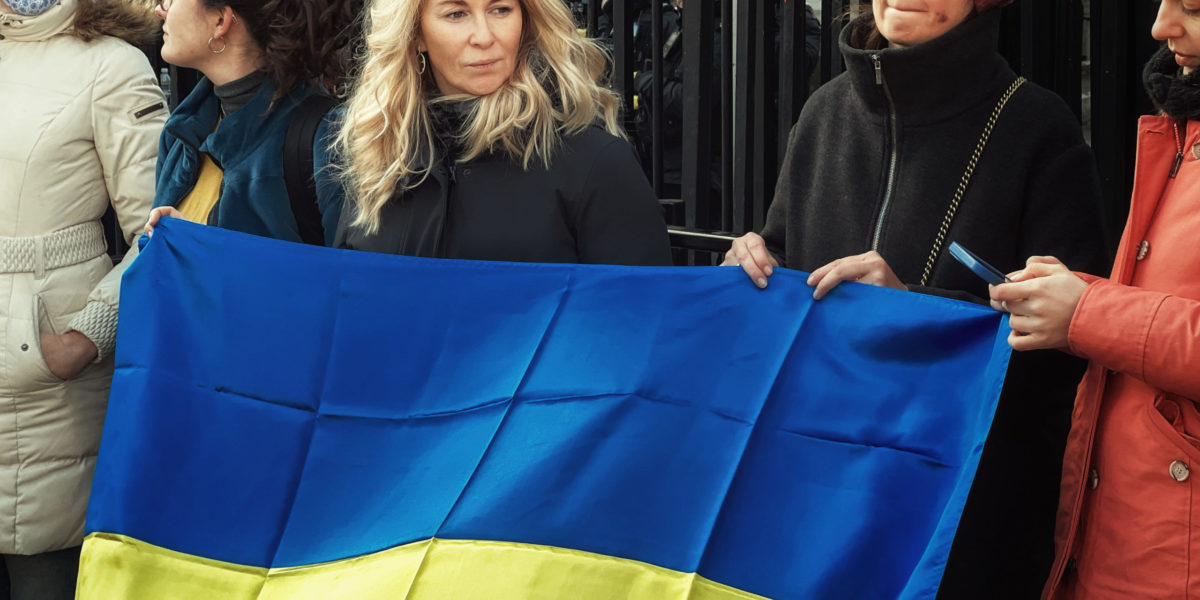Russia’s invasion of Ukraine is built on a litany of lies, with perhaps the most egregious being that the war is part of some sort of process of de-Nazification. But Russia’s motives for trying to decimate Ukraine are much more insidious.
The shelling of Ukraine and the killing of innocent citizens is aimed at one thing: subjugating the free people of a sovereign nation. Canada’s assertive approach and policies aimed at reversing Russia’s violation of Ukraine’s hard-won sovereignty are on the right side of history.
Let me explain.
There were Ukrainians who fought alongside the Axis forces in the Second World War, driven by their fear of the Soviet Union. Finland, too, allied with Germany against the Soviets.
But to try to paint all Ukrainians, wherever they may currently live, as fascist supporters is crude and untrue. My father, for example, the son of Ukrainian immigrants, was a gunner in the Canadian army during the Second World War and saw combat in Italy, in the Netherlands and Germany. He fought real Nazis and came home with deep psychological scars.
There may well be some far-right factions who both support Ukrainian independence and who are fighting on the ground against the Russian invasion. But no one has to buy into their extremist ideologies, which are not shared by the government in Kyiv. Does anyone think that Ukrainian President Volodymyr Zelensky, of Jewish descent and a former comedian, fits the bill as a Neo-Nazi?
To paint the entire Ukrainian independence movement as tainted because some members hold extremist, fringe ideology, is wrong. To support a nation in need is not necessarily supporting the political views of every single citizen under threat.
Differences that transcend language and culture
Russian president, Vladimir Putin, claims Ukraine is an invented nation, and that Russians and Ukrainians are a single people. That is a crude mischaracterization, aimed at politically and economically controlling a foreign nation. Putin’s Russia tries to negate Ukraine’s sovereignty, aiming to make the invasion seem more of an internal police action than an outright military takeover.
While there may be some cultural and linguistic commonality between Ukrainians and Russians, but Ukrainians’ drive for a homeland is centuries-long; it is a hope that transcends language and culture. The idea that Ukraine could forge its own distinct future seems to offend Putin and other Russians.
One of Putin’s professed motives for the invasion is to protect the Russian-speaking minority in Ukraine. That reasoning falls apart the second Russian troops began bombing majority Russian-speaking cities and regions.
Yet another of Putin’s supposed motives for the current violence is the possibility that Ukraine could someday join the western military alliance, NATO (North Atlantic Treaty Organization). This, Putin believes, poses an existential threat to Russia. But do Russians seriously believe members of NATO, including Norway, Denmark or Latvia, have any intention of invading a nuclear-armed Russia? Is that even a conceivable possibility?
Besides, Ukraine, as a sovereign nation, has the right to join any international organization it wishes to, be it political and economic, such as the European Union, or a defense organization, such as NATO.
Underlying all these other arguments is Russia’s belief that being a bordering nation gives free reign to its imperialist yearnings. Putin believes Ukraine must be part of Russia’s sphere of influence. It in part harkens back to Russia’s belief that it is a great empire and the way to restore its glory is to reconstruct the Soviet Union.
But the Soviet Union died many years ago, unmourned by many in Eastern Europe.
A dangerous example on Putin’s doorstep
With the dissolution of the Soviet Union, Ukraine re-gained sovereignty in 1991.
But Russia never really accepted that sovereignty, preferring to think of the newly independent nation as a break-away appendage. A democratic Ukraine, with its free and fair elections, threatened Putin’s concept of governing: authoritarianism, where little real dissidence is allowed.
Belarus, which neighbours both Russia and Ukraine, is Putin’s ideal docile state, with a dictatorship that criminalizes freedom of speech and assembly, and with its pre-ordained election outcomes. Some politcal analysts argue that Putin fears the example of a close neighbour like Ukraine, living up to democratic ideals, questions Russia’s one-man political regime.
But whatever the outcome of the Russian invasion, the roots of Ukrainian independence run deep.
The flame of Ukrainian independence won’t be extinguished
My grandfather left Eastern Europe in 1907, as part of a wave of immigration to Western Canada. He spoke Ukrainian at home with his wife, worked on the railway and raised a family on the west side of Saskatoon. It was a good decision. He missed the two world wars, Stalin’s forced famine, harsh political repression, and the nuclear disaster at Chernobyl.
Many decades ago, when I was young, I asked my grandfather what he thought Russian people. Sitting in the living room of his modest home, he answered, quietly but without hesitation: “Russia always wants to control Ukraine.”
That flame of independence won’t be crushed easily, by Putin, or by anyone else, and certainly not by invented theories about Ukraine’s right to exist.
Canada is rightly defending Ukraine’s sovereignty.
Canadian policies, in tandem with those of other democratic nations, to provide humanitarian, military, and political support, are the right thing to do. Russia needs to understand that there are consequences to its actions.



